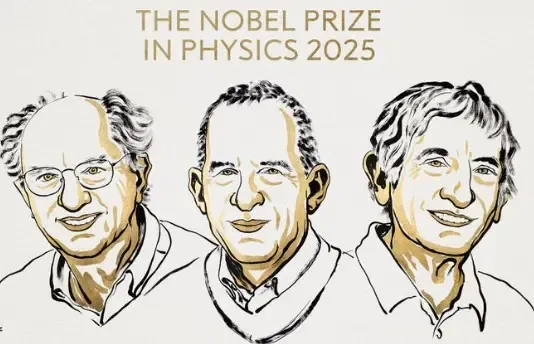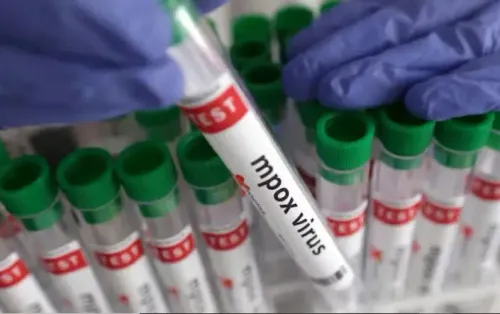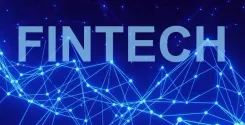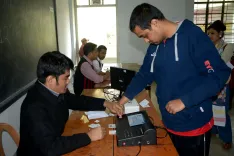Did Three US Scientists Win the 2025 Nobel Prize for Physics in Quantum Technology?

Synopsis
Key Takeaways
- Three US scientists won the 2025 Nobel Prize in Physics.
- Their work focuses on quantum technology and its applications.
- Experiments demonstrated quantum tunneling and energy quantization.
- The prize money totals 11 million Swedish kronor.
- Quantum mechanics continues to shape digital advancements.
New Delhi, Oct 7 (NationPress) Three distinguished scientists from the United States have been awarded the 2025 Nobel Prize in Physics for their groundbreaking experiments involving a chip that showcased quantum physics in action.
This esteemed award has paved the way for advancements in the next wave of quantum technology, encompassing quantum cryptography, quantum computers, and quantum sensors.
Among the laureates are John Clarke and John M. Martinis from the University of California, Berkeley and Santa Barbara, alongside Michel H. Devoret from Yale University, New Haven, and the University of California, Santa Barbara. The trio will equally share a prize totaling 11 million Swedish kronor.
The Royal Swedish Academy of Sciences remarked, “The 2025 Nobel Prize in Physics has been awarded to John Clarke, Michel H. Devoret, and John M. Martinis for their discovery of macroscopic quantum mechanical tunneling and energy quantization within an electric circuit.”
Quantum mechanics enables particles to traverse barriers via a phenomenon known as tunneling. Typically, these quantum effects become negligible when many particles are involved.
The laureates' research effectively illustrated that quantum mechanical properties can manifest on a macroscopic scale.
They performed experiments on an electrical circuit that demonstrated both quantum mechanical tunneling and quantized energy levels within a system sufficiently large to be hand-held.
Olle Eriksson, Chair of the Nobel Committee for Physics, stated, “It is remarkable to celebrate how century-old quantum mechanics continues to unveil new wonders. It is also incredibly beneficial, as quantum mechanics serves as the cornerstone of all digital technology.”
The transistors found in computer microchips exemplify the established quantum technology that surrounds us today.
In an earlier announcement, the Royal Swedish Academy of Sciences awarded the 2024 Nobel Prize in Physics to John J. Hopfield and Geoffrey E. Hinton for their pioneering work in machine learning.
These scientists were recognized for their foundational discoveries and inventions that facilitate machine learning through artificial neural networks.









